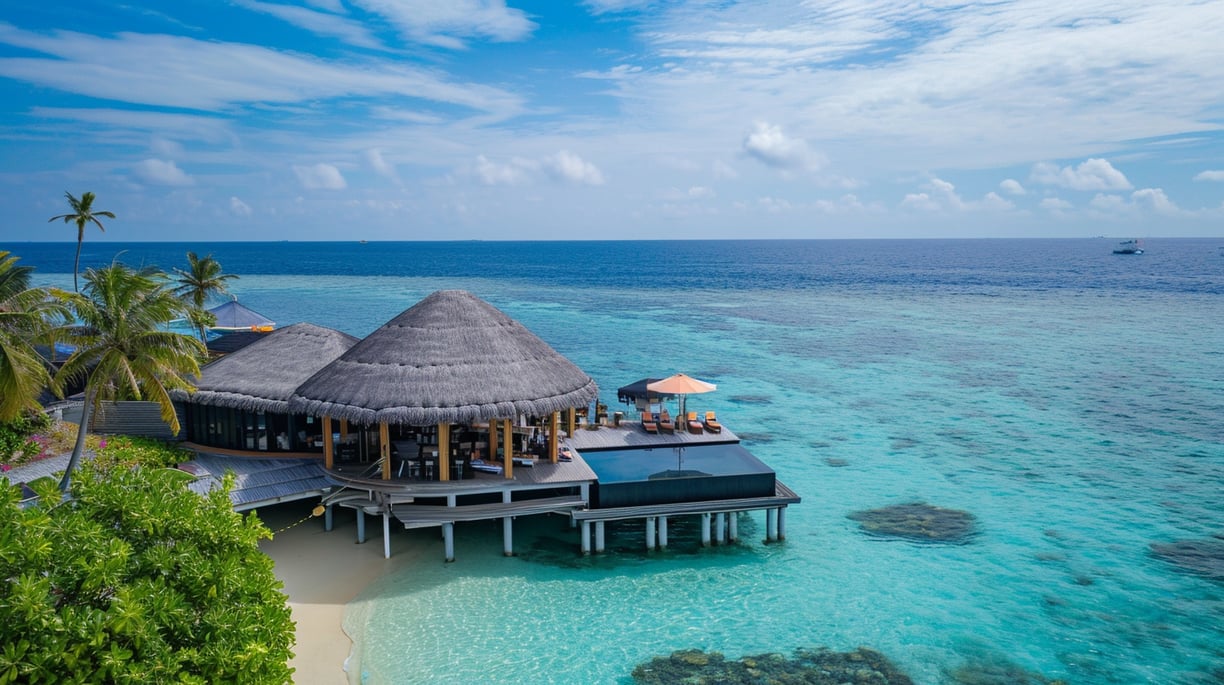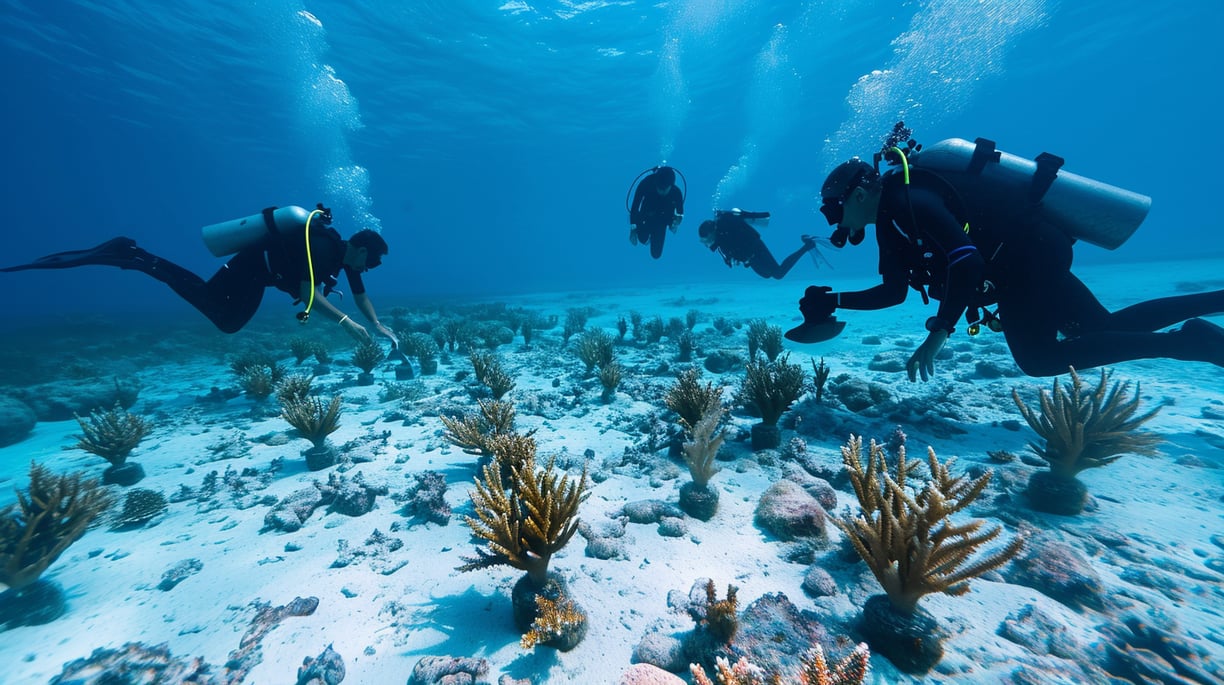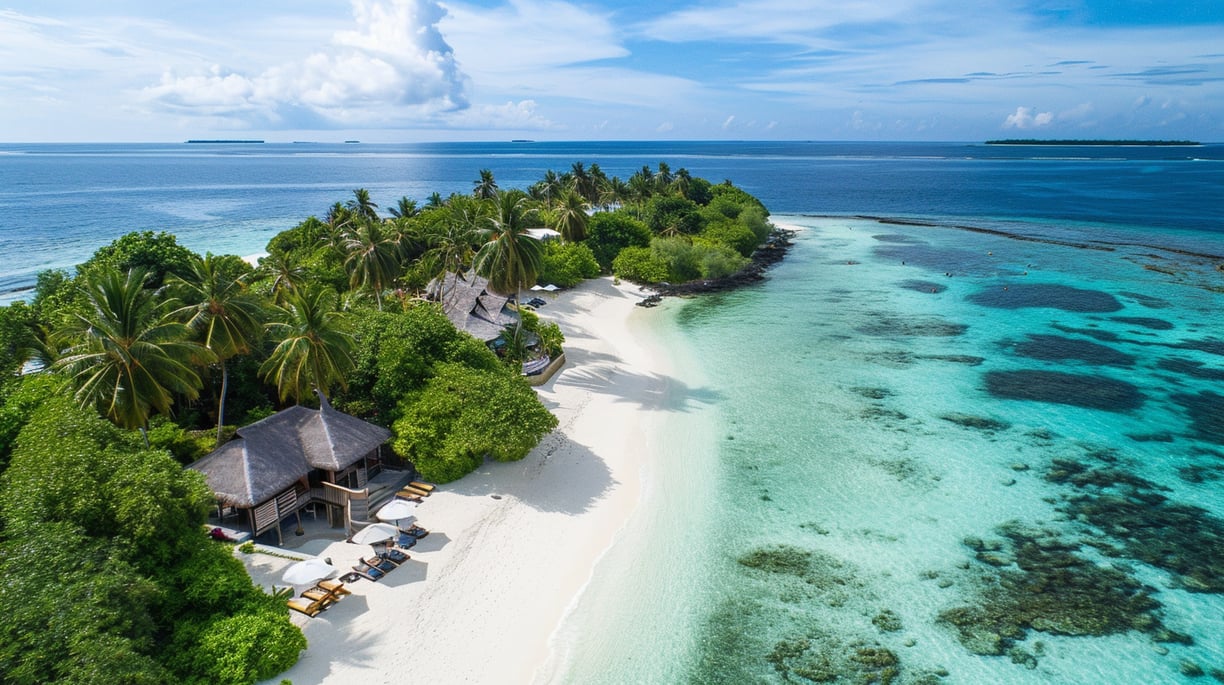Sustainable Paradise: Eco-Friendly Initiatives in Maldivian Resorts

The Maldives, a breathtaking paradise in the heart of the Indian Ocean, has long been a go-to destination for those seeking white sandy beaches, crystal-clear waters, and vibrant marine life. However, with the growing concern for environmental sustainability, the Maldivian hospitality industry has been quick to embrace eco-friendly initiatives to preserve the natural beauty of the islands. From waste management and energy efficiency to supporting local communities, Maldivian resorts are leading the way in sustainable tourism.
Understanding Sustainability in the Hospitality Industry
As the global tourism industry continues to grow, the impact on the environment becomes more significant. This has led to a shift towards sustainability in the hospitality sector. Resorts in the Maldives recognize the importance of adopting eco-friendly practices to minimize their ecological footprint and create a positive impact on the local community and environment.
The Maldives, a tropical paradise consisting of 26 coral atolls and over 1,000 islands, is known for its pristine white sandy beaches, crystal-clear turquoise waters, and abundant marine life. However, the rapid growth of tourism in this idyllic destination has posed a threat to its delicate ecosystems. The increase in carbon emissions, water consumption, and waste generation has put a strain on the Maldivian environment, calling for urgent action to ensure its long-term sustainability.
The Importance of Eco-Friendly Practices in Resorts
Eco-friendly practices in resorts are crucial for the preservation of the Maldivian ecosystem. From reducing carbon emissions to conserving water and minimizing waste, these practices help protect the delicate balance of the islands' ecosystems, including coral reefs and marine life.
One of the key initiatives taken by resorts in the Maldives is the implementation of renewable energy sources. Solar panels are installed on rooftops to harness the abundant sunlight, providing a sustainable source of electricity. This not only reduces the resorts' reliance on fossil fuels but also decreases their carbon footprint, contributing to the global efforts to combat climate change.
Water conservation is another vital aspect of eco-friendly practices in the Maldivian resorts. With limited freshwater resources on the islands, resorts have implemented innovative solutions such as rainwater harvesting and water recycling systems. These measures help reduce the strain on the local water supply and ensure the sustainability of this precious resource.
In addition to energy and water conservation, waste management plays a significant role in promoting sustainability in the hospitality industry. Resorts in the Maldives have adopted comprehensive recycling programs, segregating waste into different categories and promoting the use of biodegradable materials. Some resorts even have their composting facilities, turning organic waste into nutrient-rich soil for their gardens.
The Shift Towards Sustainability in the Maldives
The Maldives has been at the forefront of sustainable tourism, spearheading efforts to reduce the carbon footprint of resorts. With the threat of rising sea levels due to climate change, the importance of adopting eco-friendly practices has become ever more apparent in this low-lying archipelago.
Resorts in the Maldives are not only focusing on reducing their environmental impact but also on creating positive social and economic impacts on the local communities. Many resorts engage in community development projects, supporting local schools, healthcare facilities, and providing employment opportunities for the Maldivian population. By investing in the well-being of the local community, resorts contribute to the overall sustainability of the destination.
Furthermore, sustainable practices in the Maldivian resorts have also led to the development of unique and immersive guest experiences. Guests have the opportunity to participate in coral reef restoration projects, marine conservation activities, and educational programs on environmental awareness. These initiatives not only create memorable experiences for the visitors but also foster a deeper understanding and appreciation for the fragile ecosystems of the Maldives.
In conclusion, the shift towards sustainability in the hospitality industry, particularly in the Maldives, is a crucial step towards preserving the natural beauty and ecological balance of this tropical paradise. Through eco-friendly practices, resorts are not only minimizing their environmental impact but also creating positive social and economic impacts on the local communities. By embracing sustainability, the Maldives sets an example for other destinations to follow, ensuring a more sustainable future for the global tourism industry.

Green Initiatives in Maldivian Resorts
Maldivian resorts have implemented a range of green initiatives to promote sustainability. These initiatives encompass waste management and recycling programs, energy efficiency measures, and water conservation strategies.
Waste Management and Recycling Programs
In an effort to reduce waste and promote recycling, resorts in the Maldives have implemented comprehensive waste management systems. These systems ensure that waste is sorted and recycled wherever possible, minimizing the impact on the environment.
One of the key components of these waste management programs is the segregation of different types of waste. Resorts have designated separate bins for recyclable materials such as plastic, glass, and paper. This allows for efficient recycling and reduces the amount of waste that ends up in landfills.
Furthermore, Maldivian resorts have partnered with local recycling facilities to ensure that the recyclable materials collected are properly processed. These facilities use advanced technologies to transform waste into valuable resources, such as recycled materials for construction or compost for organic farming.
Resorts also actively engage their guests in waste management practices. They provide educational materials and conduct awareness campaigns to encourage guests to participate in recycling efforts. By involving guests in these initiatives, resorts not only increase their environmental impact but also foster a sense of responsibility among visitors.
Energy Efficiency Measures
Recognizing the need to reduce energy consumption, Maldivian resorts have embraced energy efficiency measures. From utilizing solar power and energy-saving technologies to implementing smart systems to regulate electricity usage, these resorts are leading the way in sustainable energy practices.
Solar power is a particularly popular choice among Maldivian resorts due to the abundance of sunlight in the region. Many resorts have installed solar panels on their rooftops to harness this renewable energy source. These panels convert sunlight into electricity, reducing the reliance on fossil fuels and minimizing carbon emissions.
In addition to solar power, resorts have also adopted energy-saving technologies. They have replaced traditional light bulbs with energy-efficient LED lights, which consume less electricity and have a longer lifespan. Furthermore, resorts have installed motion sensors in common areas to automatically turn off lights when not in use, further reducing energy wastage.
Smart systems are another innovative approach to energy efficiency. These systems use advanced algorithms to analyze electricity usage patterns and optimize energy consumption. For example, they can automatically adjust air conditioning settings based on occupancy levels or regulate the operation of electrical appliances during peak demand periods.
Water Conservation Strategies
With limited freshwater resources, water conservation is a crucial aspect of sustainability in the Maldives. Resorts have implemented various strategies such as rainwater harvesting, water-saving fixtures, and wastewater treatment systems to minimize water usage and preserve this valuable resource.
Rainwater harvesting is a common practice in Maldivian resorts, especially during the rainy season. Resorts collect rainwater through specially designed systems and store it for later use. This harvested water is then used for non-potable purposes such as irrigation, cleaning, and flushing toilets, reducing the demand for freshwater.
Water-saving fixtures, such as low-flow showerheads and faucets, are another effective strategy employed by resorts. These fixtures restrict the flow of water without compromising the guest experience. By using less water, resorts not only conserve this precious resource but also reduce the energy required for water heating.
Furthermore, resorts have implemented wastewater treatment systems to ensure that water is recycled and reused whenever possible. These systems treat wastewater to remove contaminants and make it safe for non-potable purposes. The treated water is then used for activities like landscaping or cleaning, reducing the reliance on freshwater sources.
In conclusion, Maldivian resorts are at the forefront of green initiatives, implementing waste management and recycling programs, energy efficiency measures, and water conservation strategies. Through these efforts, they are not only reducing their environmental footprint but also setting an example for sustainable practices in the tourism industry.

The Role of Local Communities in Sustainability
Sustainability in the Maldives goes beyond environmental initiatives. Resorts actively support local communities and strive to promote cultural preservation and economic growth.
Supporting Local Economies and Artisans
By sourcing local products and services, resorts contribute to the economic development of nearby communities. Visitors have the opportunity to purchase handicrafts made by local artisans, providing them with a sustainable livelihood while preserving traditional craftsmanship.
Promoting Cultural Preservation
Resorts in the Maldives value the unique cultural heritage of the islands and work towards its preservation. They organize cultural events, offer traditional cuisine, and support local initiatives that aim to safeguard the Maldivian culture for future generations.
The Impact of Sustainable Practices on Tourism
Sustainable practices not only benefit the environment and local communities but also have a positive impact on the tourism industry in the Maldives.
Attracting Eco-Conscious Travelers
With the increasing awareness of environmental issues, there is a growing demand for eco-friendly travel experiences. Maldivian resorts that prioritize sustainability attract eco-conscious travelers who are actively seeking destinations that align with their values.
Enhancing Guest Experience with Sustainability
Sustainable initiatives enhance the overall guest experience in Maldivian resorts. From immersive eco-tours to educational programs on eco-friendly practices, these resorts provide guests with an opportunity to engage with the environment and make a positive impact during their stay.
The Future of Sustainable Tourism in the Maldives
The commitment to sustainability in the Maldivian hospitality industry goes beyond the present. Forward-thinking resorts are constantly striving to implement new green initiatives while addressing challenges and seizing opportunities in sustainable tourism.
Upcoming Green Initiatives
Resorts in the Maldives are consistently exploring new ways to further enhance their sustainability efforts. They are investing in renewable energy solutions, implementing stricter waste management practices, and adopting innovative technologies that reduce their environmental impact.
Challenges and Opportunities for Sustainable Tourism
While the Maldivian resorts are making significant progress towards sustainability, challenges such as waste management and energy efficiency remain. However, these challenges present opportunities for innovation and collaboration within the industry, creating a path towards a more sustainable future.
Embrace Sustainability on Your Next Visit to The Maldives
The Maldives has embraced sustainability in its resort industry, transforming the islands into a haven for eco-conscious travelers. As visitors bask in the natural beauty and immerse themselves in the cultural richness of the Maldives, they can take comfort in knowing that their stay contributes to the preservation of this paradise. By choosing to stay in eco-friendly resorts and supporting sustainable practices, travelers play an active role in safeguarding the future of this idyllic destination. So, why wait? Plan your next trip to the Maldives and experience a sustainable paradise firsthand!